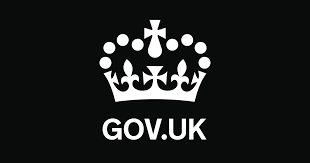Foreign secretary Liz Truss has made a statement in the Commons, stating the government’s intention to introduce a bill to allow changes to the Northern Ireland Protocol.
Truss said a settlement negotiated with the EU is preferred, but went on: “The challenge is that this solution requires a change in the Protocol itself, as its current drafting prevents it from being implemented, but the EU’s mandate does not allow the Protocol to be changed.
“This is why their current proposals are not able to address the fundamental concerns. In fact, it is our assessment that they would go backward from the situation we have today with the standstill,” Truss said.
Among other measures, the Bill will remove regulatory barriers to goods made to UK standards being sold in Northern Ireland. Businesses will be able to choose between meeting UK or EU standards in a new dual regulatory regime. That implies that UKCA and CE would both be acceptable in Northern Ireland.
Truss has had some support from the Labour benches, with Hillary Benn agreeing that EU proposals would be a backward step and calling on the EU to show greater pragmatism. Truss’s comment on the EU mandate explains the government’s view as to one reason why the EU is not being more pragmatic.
The UK government appears no longer to be talking about scrapping or suspending the protocol.
The European Commission responded with a statement that was diplomatic but uncompromising. It said that the protocol was a necessary foundation for the Trade and Co-operation Agreement with the UK.
“Should the UK decide to move ahead with a bill disapplying constitutive elements of the Protocol as announced today by the UK government, the EU will need to respond with all measures at its disposal.”
From the start, the protocol has been regarded by some commentators as a problem without a solution. The latest exchanges raise fears of a trade war between the UK and the EU, which at a time when the economies of both are under strain and benefit neither.
In the machinery and component supply chain, many firms now regard Northern Ireland in many ways as part of the EU rather than the UK, in terms of the supply of goods and related services. The chief executive of Manufacturing NI was quoted in The Irish Times last month, saying: “Manufacturers have generally got to grips with the problems around the Protocol and have made the appropriate changes to their future supply chain and procurement processes.”
Meanwhile, The Times this morning reports that the bill could take a year to pass, due to opposition from Conservative peers in the House of Lords.
Truss’ statement: https://www.gov.uk/government/speeches/northern-ireland-protocol-foreign-secretarys-statement-17-may-2022
European Commission statement: https://ec.europa.eu/commission/presscorner/detail/en/statement_22_3142
Comment welcome

